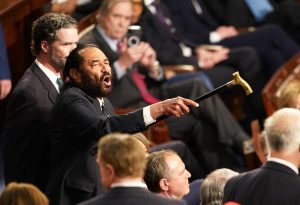Native Americans and Indian Tribes have prominence in the US, especially in relation to the Indian Gaming Industry; nonetheless, there are common misconceptions and unjust perceptions of these Tribes and their authority in respects to the law and gaming industry.
We have the pleasure of speaking with Danielle Her Many Horses, who is the General Counsel for the National Indian Gaming Association, and speaks on the challenges the Indian gaming industry faces.
What common challenges do the Indian Gaming industry face in the US? How do these challenges often lead to litigation?
In 2016, 244 tribal governments operated 484 gaming facilities in 28 states, helping Indian gaming grow to $31.2 billion in direct revenues (a 4.4% increase over 2015) and $4.2 billion in ancillary revenues[1]for a total of $35.4 billion in total revenues. Overall Indian gaming directly employs over 310,000 people. Indian tribes engaged in gaming are operating under their inherent right of self-government. The Indian Gaming Regulatory Act, (IGRA) is a federal act that limits tribal sovereignty and creates a limited role for federal and even more minutely state regulation. The fact there are 273 separate sovereigns, each with its own laws and public policy concerns gives rise to conflicting interests, some of which lead to litigation.
What are common misconceptions that people have about/towards Indian Law? What could be done to reduce these issues?
The most common misperception is that Congress through IGRA, authorised or granted Indian tribes the right to conduct gaming. The truth is that Indian tribes were conducting gaming operations for more than a decade prior to IGRA. In the 1970s, a handful of visionary tribal leaders used gaming as a means to generate revenue for essential tribal government programmes and services. States and commercial gaming interests challenged these acts of tribal self-governance in federal court. Litigation culminated in the 1987 Supreme Court decision in California v. Cabazon, which held that Indian tribes retained inherent sovereign authority to conduct gaming on Indian lands, free of state government interference. A little more than 18 months later, in 1988, Congress enacted IGRA, in part to impose a federal regulatory system, placing some limits on the Court’s Cabazon decision.
A related misperception is that Indian gaming is untaxed commercial activity. Again, this could not be further from the truth. Tribal governments establish gaming operations to generate revenue for essential programmes and services to Native communities. IGRA in fact requires that Indian gaming revenues be used for one of five government-driven purposes: to fund tribal governmental operations or programmes; to provide for the general welfare of the tribe and its members; to promote tribal economic development; to donate to charitable organisations, and to help fund operations of local government agencies. So in fact, Indian gaming is 100% taxed by tribal governments.
Do you think the US government and administration do more to help with these issues?
Federal Indian policy has gone through many iterations since the inception of the United States. Upon formation, the US respected tribal sovereignty, acknowledging Indian tribes as separate governments in the US Constitution and through hundreds of treaties in which tribes ceded homelands in return for federal government promises to protect tribal sovereignty, and provide for basic services on Indian lands. However, policies through the 1800s and mid-1900s directly abrogated these obligations, taking hundreds of millions of acres of Indian lands, suppressing tribal culture, and devastating tribal economies. The current policy supporting Indian self-determination - formally adopted in 1970 - seeks to reverse much of the damage inflicted on tribal governments. Tribal gaming is one of the most successful exercises of Indian self-determination: tribes taking matters into their own hands. It has brought jobs into communities where there were none before. It has helped tribal economies diversify and provide more long term economic growth. It is fulfilling the promise of “livable homelands” for Indian tribes. However, Indian gaming is not a panacea, and does not divest the United States of its solemn treaty and trust obligations to provide basic health, education, and public safety services to Native communities.
NIGA’s aim is to protect tribal sovereignty; as Thought Leader, can you share ways in which this could be done by other legal experts?
Respecting tribal institutions is paramount. Indian tribes have rich bodies of tribal law and robust court sysems. Those laws are different in each of the 567 tribal jurisdictions. Any attorney wanting to work in a tribal community must know the laws of that tribe. Learning tribal laws is not as simple as running a quick internet search. It may not be handily codified either. It will likely require diligent research within that community. You may need to obtain local co-counsel. Respecting and using tribal law and tribal institutions is a benefit to all the parties involved.
Danielle Her Many Horses
Deputy Executive Director/ General Counsel
National Indian Gaming Association
224 2nd Street SE
Washington, DC 20003
202.546.7711 main
202.548.3819 direct
About Danielle Her Many Horses and NIGA
My name is Danielle Her Many Horses. I am Oglala Lakota, born and raised on the Pine Ridge Indian Reservation. I serve as Deputy Executive Director and General Counsel for the National Indian Gaming Association. National Indian Gaming Association is an intertribal trade organisation of federally recognised Indian Tribes in the United States of America with the mission of protecting and preserving tribal sovereignty and the ability of Tribes to attain economic self-sufficiency through gaming and other forms of economic development. The common commitment and purpose of NIGA is to advance the lives of Indian peoples economically, socially, and politically. NIGA operates as an educational, legislative, and public policy resource for tribal policy makers as well as the public, on issues related to Indian gaming and tribal community development.
[1] Ancillary revenues include hotels, food and beverage, entertainment, and other activities related to a tribal government’s gaming operation.




















